Resilience can perhaps be best described rather un-scientifically as “getting through hard stuff without breaking”. Over the last few years the term has come up often as the world has gone through turbulences and everyone tries to figure out how to keep going and be prepared for more unexpected upheaval in the future.
But it’s not just about big, earth moving events – we benefit from resilience in our daily lives and our children do too: when moving and starting a new school, learning a new skill, dealing with disappointment and change – all of this is made a little easier with resilience.
Resilience is the ability to cope with failure and adversity, with getting things wrong and still sticking with “it”, of not giving up and – eventually, at your own pace – bouncing back stronger.
Some say resilience can only be developed under pressure, when difficult things happen, like a piece of coal turning into a diamond. But what if we want to help our children develop resilience so they are prepared for hard times and situations when they happen? Is that possible? How can we help our children develop this important life skill?
The 7C’s of Resilience model says it is possible to become more resilient without going through fire. It outlines 7 areas parents and caregivers can focus on to ultimately help children become resilient.
Here’s the really good news: the simple fact that a person cares enough about a child to think about their well being and act on it in small ways is already a big step towards building resilience in that child, as one strong relationship with a caring adult can change a child’s life.
The 7C’s of resilience are Confidence, Competence, Contribution, Connection, Character, Control and Coping. This post looks at confidence.
A recent conversation (abbreviated)
Me: “Are you confident?” (closed question, I know…)
Son (age 12): “No. That’s when you can stand in front of the class and speak.“
Me: “Hmmmm. What about being confident to have conversations in English & German? What about your confidence in knowing you can learn & improve if you work on something – like an instrument or swimming?“
Son: “Yeah, I guess in some ways I am confident.”
What is confidence?
Another conversation – this time with my 3rd grader – made me realize I have a grasp of the concept but I struggled to explain it to her. So we did some research – because if you can’t explain something so a 3rd grader understands it, you don’t know it well enough.
Webster’s dictionary puts it this way:
CONFIDENCE: stresses faith in oneself and one’s powers without any suggestion of conceit or arrogance.
The German translation for confidence is “Selbstbewusstsein” which literally translates to “self awareness”.
Vanessa Van Edwards, author of Cues, a book about body language and using it with awareness, defines confidence as:
Knowing I am warm, authentically likeable, capable and trustworthy.”
She also goes on to encourage us to broaden our definition of what confidence means to include not just the outspoken extrovert but also the quiet introvert, and the nurturing healer, to name a few. Just like my son and I discovered in our conversation, there is more than one version of confidence.
This fits well with what the 3rd grader worked out:
Confidence is knowing what is important to you and standing/speaking up for it.
I added: “in a way that feels good and right for you”.
Believing in myself and my abilities and knowing the value I bring. That is confidence – in large groups and when you’re all alone.
Why does it matter?
Confidence is one of the “7C’s of Resilience” in the Model of Building Resilience developed by Dr. Ginsburg. Confidence helps us move forward and navigate the world, when we’re doing things we know about and especially when stepping into new situations.
It is important to build and maintain confidence in children as it is a major differentiator in successful adults. This article in The Atlantic collected research and conducted studies to come to the conclusion that confidence matters just as much as competence. A key finding was the relationship between confidence and action. It is a virtuous circle where confidence in our ability spurs us to action. Taking action increases our belief in ourselves, in turn bolstering confidence.
The flip side is that lack of confidence results in inaction. When we feel less confident, we hold ourselves back. And so on.
The article also outlines just where we as (Euro-centric) societies let our girls drop off the confidence grid while boys continue to gain confidence. This ultimately leads to a confidence gap in adulthood, resulting in different career paths and success stories for many women and men. I have taken it to heart as a mother and parenting mentor to consciously find ways to build and maintain confidence in all children. See below for some initial steps in this direction.
The bottom line: Confidence is one part of building resilience but also a key factor in life long success.

How do we help our kids build confidence?
As seen above, confidence is built through action. Keeping this in mind, find and create opportunities for your children to experience success and gain confidence. So-called stretch goals that require them to work a bit to reach and achieve them. The feeling of success when the goal is reached will build confidence and prepare them for the next (harder) thing. Endorphins released will be remembered and associated with the event, creating a positive feedback loop their minds.
Some ideas are ordering by themselves in a restaurant, getting ready for school on their own, learning to take care of a pet, participating in a production or recital (read more on my take on theater, here) or starting a new sport.
A key element to building confidence is also reflecting on achievements, recalling what was hard and how the result was achieved (and what might help next time). Help you children collect and remember success stories.
Ask them to tell you the stories AND find times where you share stories of their successes with them, too. In one of my favorite children’s books, Little Bear asks Mother Bear: “Tell me about me… tell me about things I once did.” And he revels in the memories of his adventures and exploits as told by his mother.
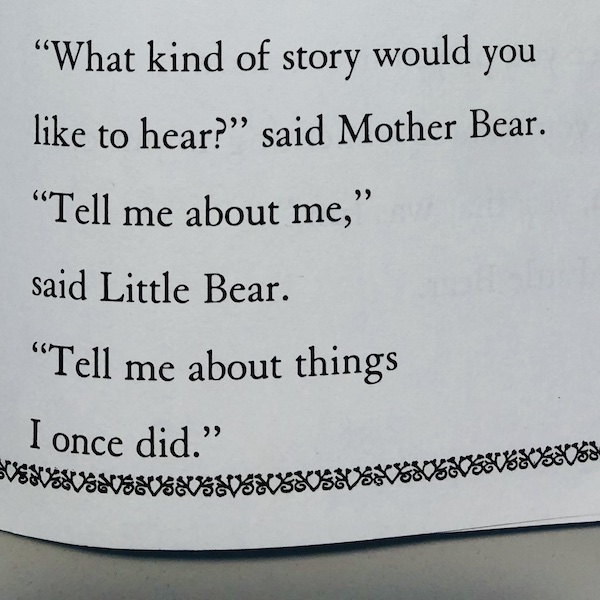
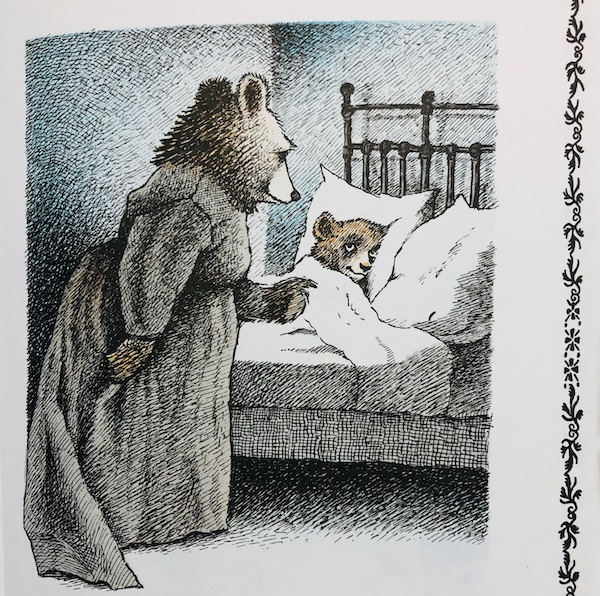
The Little Bear books were written by Else Holmelund Minarik, illustrated by Maurice Sendak, and published by Harper & Row.
Confidence is important for life long success and can be built over time. However, it is only one element of building resilience in children and goes hand-in-hand with the other C’s: Contribution, Competence, Connection, Character, Control and Coping which will be covered in future posts.
don't miss the next Part
Sign up here and get regular mail from me - posts, news, tips, links and jokes for international parents.
And what about you?
Confidence is also important for adults and the same exercises apply as for your children.
Challenging yourself to try new things, to stretch a bit will also help you gain confidence. I recently packed up the kids and drove our large van into a very small French town. Some of the challenges were travelling by car with the kids, getting around France and parking the big car in very small parking garages & spaces. But I did it and had fun – the boost I felt afterwards was definitely real and a good reminder that I am able to do things I haven’t before.
Recalling situations where you felt confident and did well can help you the next time you face a new and different task.
A good place to start is by joining an I am Remarkable workshop. In these free workshops I share the data of why it’s so important to speak up for ourselves and you get to start practising doing it. Check dates and sign up for the next one here.


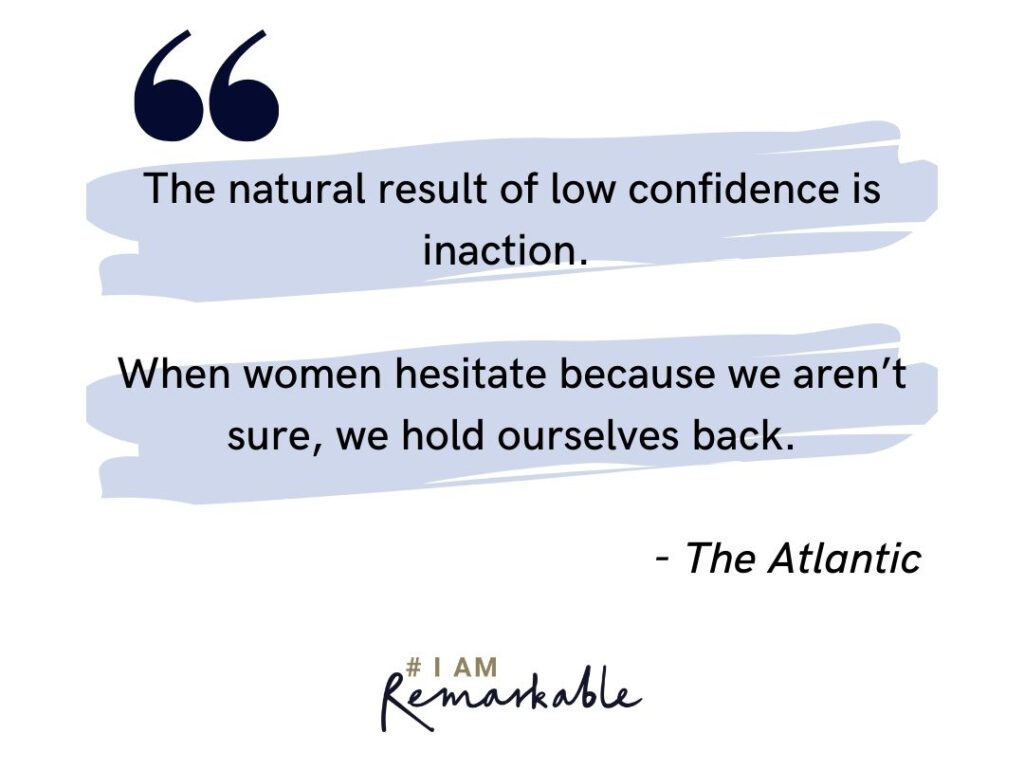

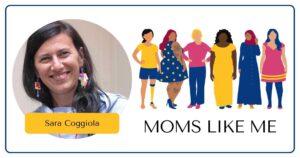
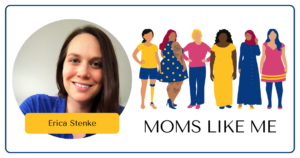
Pingback: Why Contribution is Key - Resilient Kid Series contribution builds resilience
Pingback: Kids Coping Well - Resilience Series
Anna – you are truly wonderful in putting all this together. I really enjoy your posts and your insights with all the research and time you put in there – very good for our community, too! You are remarkable and the word of the year is always with me. THANK YOU!
Thank you Kira – so happy you find it helpful.